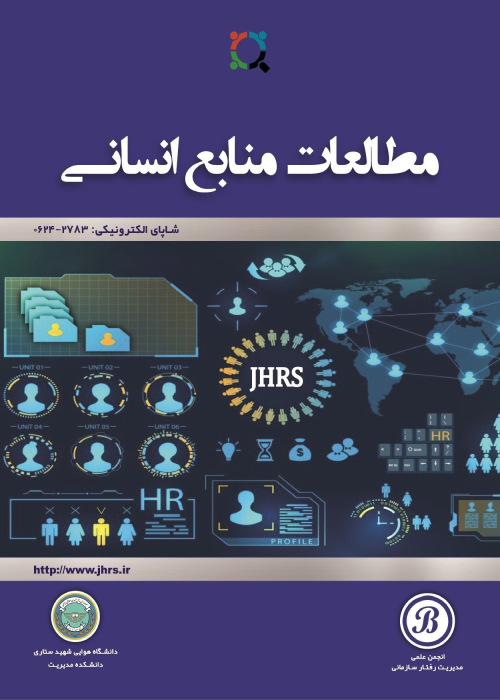Superiors’ Personal Traits and Management of Perceptual-behavioral Justice in Organizations (Based on Nahj-Ol-Balagha Text)
Perception of justice arises from the social actions in the form of perceptual-behavioral cycles between social actors over time. In organizations, this cycles between superiors and subordinates affect the perceptions and consequently the behaviors of both sides of the relationship. Considering the small number of superiors and their placement in the center of organizational interactions, the best point of intervention to manage these cycles is the perceptions of superiors. In this research, our goal is to identify personality traits that influence the perception of justice of leaders and their continued behavior.
This research is fundamental in terms of results, is exploratory regarding purpose, and is qualitative concerning method, the data were collected by library research and based on thematic analysis of the Nahj-Ol-Balagha Text. To do so, Nahj-Ol-Balagha Text was read many times and coding was accomplished after selecting the related parts. Then, the codes were revised, summarized, and then categorized in different steps. The results were validated using expert panel and Holsti’s coefficient of reliability (92%). Finally, Delfi Method was used to reach agreement in categorizing the codes.
Two sets of codes were found in this study: the 25-code set refers to the relationship between personal traits as well as behavior with the values and believes. The second set consists of 505 basic recorded codes that categorized in the form of two main organizing themes of magnanimity and dignity, and steadfastness and fortitude. Magnanimity and dignity cover three sub-organizing themes including: respect for others, kindness and generosity, and the main organizing theme of steadfastness and fortitude, and includes three sub-organizing themes of self-control, insight, and personal stability. These findings signify a specific style of leading that is balanced through these two sets of Magnanimity and dignity, and steadfastness and fortitude.
The results suggest that the leaders who possess the characteristics mentioned in this research, will perceive less injustice, and after the perception of injustice, the possibility of extreme behavior in them is less probable. Thus, it is expected that the perception of justice in the subordinates of such leaders will be more and the atmosphere of justice in the organization will be more positive as well.
- حق عضویت دریافتی صرف حمایت از نشریات عضو و نگهداری، تکمیل و توسعه مگیران میشود.
- پرداخت حق اشتراک و دانلود مقالات اجازه بازنشر آن در سایر رسانههای چاپی و دیجیتال را به کاربر نمیدهد.



